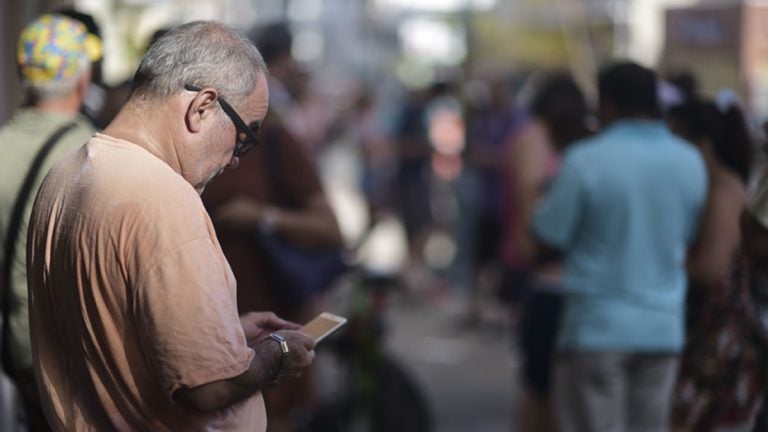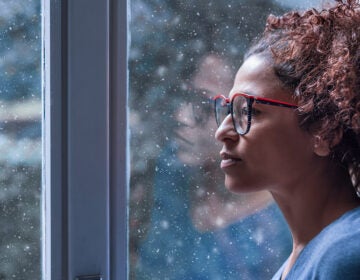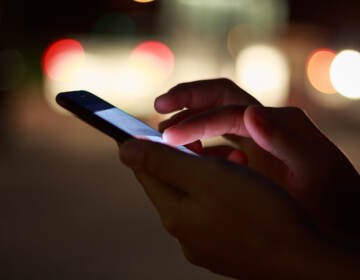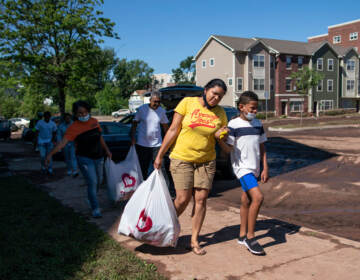Dealing with anxiety, stress while waiting for news from Puerto Rico
For many of the more than 120,000 Puerto Rican Philadelphians, it's been a difficult week as they've been unable to get in touch with their relatives after Hurricane Maria.
Listen
A man stands at a Wi-Fi hotspot in the aftermath of Hurricane Maria with many cellphone towers down in San Juan, Puerto Rico, Sunday, Sept. 24, 2017. (Carlos Giusti/AP Photo)
For many of the more than 120,000 Puerto Rican Philadelphians, it’s been a difficult week.
Many families here still haven’t been able to get in touch with their relatives on the island after the devastation of Hurricane Maria. And the anxiety of being without contact can be overwhelming.
Alisha Miranda was born in Puerto Rico and now lives in South Philadelphia. She hasn’t been able to reach several of her family members on the island, and it’s starting to take a toll on her.
“It’s just really hard to concentrate,” she said. “I’m just trying to stay strong, but if I think about it for too much, it’s really hard.”
Miranda said she’s making mistakes at work, and, in every free moment, she’s checking social media for updates.
Therapist Margarita Graber, who works at Hispanic Community Counseling Services in North Philadelphia, said she’s been hearing similar stories from many of her clients.
“They are all devastated about what’s happening there in the island and they are worried” about their families, said Graber.
Telling her clients to get in touch with the Red Cross, she said she’s trying her best to comfort them. But Graber is also realistic that things are tough right now in Puerto Rico.
Her sister just asked her to send a generator because it may take four to six months for reliable electricity to return.
People on the mainland are experiencing vicarious trauma, according to Christian Jordal, a therapist who specializes in family counseling and teaches at Drexel University.
“This is not just happening to people who are in Puerto Rico, but anyone who identifies themselves as Puerto Rican. There’s always that connection,” he said.
For some people, Jordal said, fundraising or direct service can be a good way to deal with the uncertainty — if it’s not too overwhelming,
“They’re turning their anxiety into sort of action in a way that helps them at least have an outlet for it,” he said.
For instance, Graber plans to go to the Toa Alta region of Puerto Rico to volunteer her services as a therapist.
And Miranda is channeling her frustration with the federal government’s slow relief efforts by helping to collect emergency supplies.
Jordal also recommended that parents give each other time to process their feelings by taking turns doing child care.
“The idea is how can we identify and create space for positive coping strategies? Things that will at least make them feel slightly better, or less worried or anxious,” he said.
Families should think about what they already do to cope with difficult times, he said, and ramp those activities up.
And it’s OK to take breaks from the news and social media, he said.
WHYY is your source for fact-based, in-depth journalism and information. As a nonprofit organization, we rely on financial support from readers like you. Please give today.




